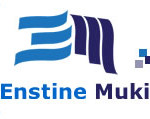The importance of the Angular framework through the lens of data:
- 125,787 live websites use Angular as their framework.
- Giants such as Netflix, Gmail, Upwork, and YouTube TV use Angular as their front-end framework.
- The front-end framework comes with the trust and reputation of Google.
Now you know how essential Angular is. All you want to do now is to go hire Angular developers. However, before you do so, read this article.
In the next five minutes, learn all about the 9 reasons to choose the Angular framework For building digital products.
The complete guide will discuss:
- How having a simplified MVC architecture helps in building digital products
- How clean code with TypeScript helps in building digital products
- How the Angular material helps in building digital products
- How a declarative UI helps in building digital products
- How easy unit testing helps in building digital products
- How reusability and consistency help in building digital products
- How increased productivity helps in building digital products
- How optimal functionality helps in building digital products
- How efficient maintainability helps in building digital products
Without further ado, let’s begin.
9 Reasons to Choose the Angular Framework for Building Digital Products
1. Simplified MVC architecture
The Angular framework is embedded with the original Model-View-Controller software architecture setup.
Furthermore, the framework never asks developers to divide the digital product into multiple MVC components and create a code to combine the components. All the developer needs to do is divide the app. The framework will do the rest.
The developers don’t need to write getters and setters. Another team can manage the directives as they’re not part of the app code.
The simplified MVC architecture encourages less coding. Thus, digital products perform faster.
Note that the architecture doesn’t come with the originally established standards.
2. Clean code with TypeScript
TypeScript acts as the base language for Angular and is a strongly-typed language. Furthermore, TypeScript – which is a superset of JavaScript – offers better:
- Refactoring
- Autocompletion
- Navigation
Thus, developers can keep the code neat and clean. The cleaner the code, the better the app performance.
Furthermore, the language allows developers to spot and fix bugs in the app as they type the code. The function basically acts as Grammarly for your code.
Furthermore, TypeScript helps in managing and maintaining a large codebase. The benefit is especially helpful for enterprise-scale projects.
Angular 8 comes with TypeScript version 3.4 that offers:
- Reduced build time
- Syntax changes
- Type inferring
Adding to Angular benefits.
3. Angular Material
Angular Material is a set of UI modules optimized for the Angular framework.
Furthermore, the components go through extensive testing across all modern browsers and allow developers to add new elements to their apps faster. Moreover, the process never hinders app performance to a minimum either.
The ready-to-use UI components follow the material design principles of Google. Furthermore, the UI components come with a plethora of functions such as:
- Buttons
- Indicators
- Form controls
- Navigation patterns
The functions are adapted to work across the web, desktop, and mobile.
The functions further allow developers to build digital products faster.
4. Declarative UI
The Angular framework comes with HTML to define the UP of the digital product. Developers prefer using HTML over JavaScript as a programming language as HTML is:
- More intuitive
- Less convoluted
- Declarative
Thus, developers need to invest less time to find and fix program flaws. Furthermore, the programming language allows developers to decide which component should load first in much less time than JavaScript.
The programming language uses directives such as:
- Forms control
- ng-model
- ng-app
- ng-repeat
to achieve the same.
Thus, if you’re still wondering why Angular is so popular, declarative UI is one of the reasons.
5. Easy unit testing
Angular makes unit testing easier as the components are independent of each other. The framework has been designed keeping the ease of unit testing in mind.
The components come with application parts that are easy to manipulate. Furthermore, with module separation, developers can load the essential services while they perform automatic testing with ease.
6. Reusability and consistency
Insistent coding:
- Reduces the efficiency of the digital product
- Escalates development cost
- Increases the risk of delayed time-to-market
Not something you’d want to experience.
Angular solves the problem by offering consistent code. The code makes the process of building digital products easier. Furthermore, the framework allows developers to use predefined snippets of code and use of templates.
Furthermore, the Angular CLI tools make specific repeatable blocks of code from the command line.
7. Increased productivity
The consistent code of the Angular framework increases productivity. Here’s how:
The front-end framework decides what a:
- Utility
- Component
- Function
Does. Thus, developers don’t need to spend time on those aspects.
Furthermore, code readability allows developers to slot into any ongoing digital product building project.
The Angular framework sorts codes into buckets or modules. The modules divide the app functionality into two aspects – reusable chunks and features.
Furthermore, the framework allows lazy loading. The process allows feature loading on-demand or in the background.
Furthermore, TypeScript incrementally recompiles the code and highlights errors as developers type the code. Thus, developers can fix the errors right away.
8. Optimal functionality
One of the advantages of Angular over other frameworks is that you can have everything you need for development fight out of the box.
Thus, developers won’t need to get third-party libraries in the tech stack for creating the basic functionalities of the digital product. The official library that comes with the Angular framework can perform the same task.
Furthermore, the framework takes care of unit testing. Thus, you receive increased security and clean quality code.
Therefore, it takes less time and cost to develop an app; an advantage any business building digital products would love to have.
9. Efficient maintainability
If you’re asking, “Why do businesses choose Angular for building digital products?” efficient maintainability is one of the answers.
Angular achieves the same by using two ways – using TypeScript and focusing on testability.
TypeScript lets developers find and fix bugs while they’re typing the code. Furthermore, TypeScript allows developers who are new to handling the codebase to get a hang of it without much hassle. The reason behind this is the developers can see the data types moving through the app at all times.
Furthermore, the dependency injection feature makes test writing easier. The front-end framework supports Protractor for end-to-end testing as well.
Furthermore, whenever you update Angular to its latest version, all related packages get updated at the same time. All you need to do is use a single command ‘ng update’ and the framework will do the rest.
Reasons to Choose the Angular Framework for Building Digital Products – The Framework Is Here to Stay
The Angular framework comes with 83.2k GitHub stars. Thus, if you’re still wondering why choose the Angular framework, this is one of the reasons.
Therefore, it’s best to choose the Angular framework for building digital products.
Now that you know all about the 9 reasons to choose the Angular framework For building digital products, we hope the knowledge will help you to make the most informed decision.

